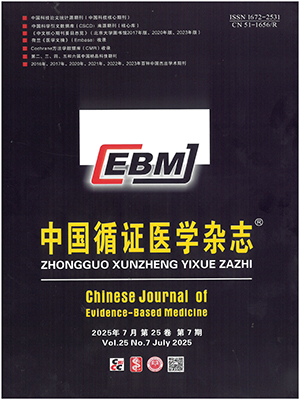Objective To investigate the effectiveness of different drug use regimens in preventing the development of preeclampsia in high-risk pregnant women in China. Methods We searched CNKI, WanFang Data, VIP, PubMed, Embase, and Cochrane library databases. Randomized controlled trials (RCTs) of published studies on the prevention of the onset of preeclampsia in high-risk pregnant women in China were searched between January 2000 and August 2024. After two investigators independently screened the literature according to the inclusion and exclusion criteria, extracted the data, and evaluated the included studies, a network meta-analysis was performed using Stata 15.0 software. Results A total of 33 RCTs with 5 364 patients involving five pharmacological intervention regimens were included. Network meta-analysis showed that aspirin combined with vitamins and aspirin combined with calcium were more effective than aspirin alone up to 36 weeks in preventing the onset of preeclampsia. The results of the best probability ranking showed that aspirin combined with vitamins and aspirin combined with calcium had a higher probability of being optimal for preventing the onset of preeclampsia. Conclusion Aspirin is effective in preventing the development of preeclampsia in high-risk pregnant women in China, but it is necessary to develop an individual combination management plan according to the patient's specific situation.
Citation:
ZHAO Yongzhao, ZHANG Man, SHENG Yuting, LIU Xinghui. Different strategies for preventing preeclampsia in high-risk pregnant women in China: a network meta-analysis. Chinese Journal of Evidence-Based Medicine, 2025, 25(8): 888-894. doi: 10.7507/1672-2531.202501092
Copy
Copyright © the editorial department of Chinese Journal of Evidence-Based Medicine of West China Medical Publisher. All rights reserved
| 1. |
|
| 2. |
|
| 3. |
|
| 4. |
|
| 5. |
|
| 6. |
|
| 7. |
|
| 8. |
|
| 9. |
|
| 10. |
|
| 11. |
|
| 12. |
|
| 13. |
|
| 14. |
|
| 15. |
|
| 16. |
邓琼, 江丹丹, 莫萍, 等. 小剂量阿司匹林预防妊娠期高血压疾病的效果分析. 中国实用医药, 2020, 15(19): 135-136.
|
| 17. |
|
| 18. |
|
| 19. |
|
| 20. |
|
| 21. |
|
| 22. |
|
| 23. |
|
| 24. |
|
| 25. |
|
| 26. |
|
| 27. |
|
| 28. |
|
| 29. |
|
| 30. |
|
| 31. |
|
| 32. |
|
| 33. |
|
| 34. |
|
| 35. |
|
| 36. |
|
| 37. |
|
| 38. |
|
| 39. |
|
| 40. |
|
| 41. |
|
| 42. |
|
| 43. |
|
| 44. |
|
| 45. |
|
| 46. |
|
| 47. |
|
| 48. |
|
| 49. |
|
| 50. |
|
| 51. |
|
| 52. |
|
| 53. |
|
| 54. |
|
| 55. |
|
| 56. |
|
| 57. |
US Preventive Services Task Force, Davidson KW, Barry MJ, et al. Aspirin use to prevent preeclampsia and related morbidity and mortality: US preventive services task force recommendation statement. JAMA, 2021, 326(12): 1186-1191.
|
| 58. |
|
| 59. |
|
| 60. |
|
| 61. |
|
| 62. |
|
| 63. |
|
| 64. |
|
- 1.
- 2.
- 3.
- 4.
- 5.
- 6.
- 7.
- 8.
- 9.
- 10.
- 11.
- 12.
- 13.
- 14.
- 15.
- 16. 邓琼, 江丹丹, 莫萍, 等. 小剂量阿司匹林预防妊娠期高血压疾病的效果分析. 中国实用医药, 2020, 15(19): 135-136.
- 17.
- 18.
- 19.
- 20.
- 21.
- 22.
- 23.
- 24.
- 25.
- 26.
- 27.
- 28.
- 29.
- 30.
- 31.
- 32.
- 33.
- 34.
- 35.
- 36.
- 37.
- 38.
- 39.
- 40.
- 41.
- 42.
- 43.
- 44.
- 45.
- 46.
- 47.
- 48.
- 49.
- 50.
- 51.
- 52.
- 53.
- 54.
- 55.
- 56.
- 57. US Preventive Services Task Force, Davidson KW, Barry MJ, et al. Aspirin use to prevent preeclampsia and related morbidity and mortality: US preventive services task force recommendation statement. JAMA, 2021, 326(12): 1186-1191.
- 58.
- 59.
- 60.
- 61.
- 62.
- 63.
- 64.




